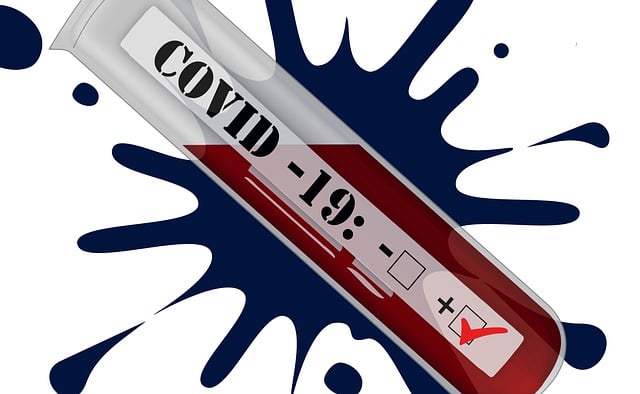Unleash Your Potential: Online Testosterone Blood Test Journey

Men can conveniently monitor testosterone levels through online blood tests, eliminating discomfort…….
In an era where personalized healthcare is gaining prominence, the online testosterone blood test has emerged as a game-changer in men’s health monitoring. This innovative approach allows individuals to conveniently access information about their hormone levels from the comfort of their homes, empowering them to take charge of their well-being. The article delves into the intricacies of this topic, exploring its definition, global impact, economic implications, technological advancements, regulatory landscape, challenges, and future prospects. By the end, readers will have a comprehensive understanding of the online testosterone blood test and its potential to transform healthcare practices worldwide.
An online testosterone blood test is a non-invasive medical procedure that measures the level of testosterone, the primary male sex hormone, in an individual’s blood stream. This process involves taking a small sample of blood, usually from a finger prick or a vein in the arm, and sending it to a certified laboratory for analysis. The results are then securely delivered to the patient via an online platform, accompanied by interpretation and guidance.
Historically, testosterone levels were primarily assessed through clinical visits, where patients would undergo more invasive procedures like blood draws at hospitals or clinics. However, the advent of digital health technologies has democratized access to this vital information. Online platforms now offer easy-to-use services that allow men to monitor their testosterone levels regularly, without the hassle and often high costs associated with traditional methods.
The significance of this test lies in its ability to provide early insights into potential hormone imbalances, which can impact various aspects of a man’s health, including sexual function, muscle mass, bone density, and overall well-being. By identifying these issues promptly, individuals can seek appropriate medical interventions or lifestyle adjustments to maintain optimal hormone levels.
The online testosterone blood test has garnered global attention and adoption due to its potential to improve men’s health outcomes on a significant scale. Key trends shaping this space include:
Increasing Awareness: Growing awareness about the importance of hormone health among men is driving demand for convenient testing options. Educational campaigns and initiatives by healthcare organizations have played a pivotal role in this regard.
Digital Health Integration: The integration of digital health technologies, such as mobile applications and online portals, has made testosterone testing more accessible and user-friendly. These platforms enable patients to track their results over time, set reminders for tests, and consult with healthcare professionals remotely.
Remote Monitoring: With the rise of telemedicine, remote monitoring of hormone levels has become increasingly feasible. This trend is particularly prominent in regions with limited access to traditional healthcare facilities.
Personalized Medicine: The concept of personalized medicine is gaining traction, encouraging tailored healthcare approaches based on individual needs. Online testosterone testing aligns with this trend by providing customized insights and recommendations.
Geographically, North America and Europe have been at the forefront of embracing online testosterone blood tests, driven by advanced digital infrastructure and a strong focus on preventive healthcare. Asia-Pacific is also witnessing rapid growth, fueled by increasing urbanization and a growing middle class seeking proactive health solutions.
The online testosterone blood test market presents significant economic opportunities and considerations:
Technological innovations have been pivotal in shaping the online testosterone blood test landscape, enhancing accuracy, convenience, and accessibility:
Point-of-Care Testing (POCT): POCT devices allow for rapid, on-site testing, providing immediate results. These devices are particularly useful in clinical settings and remote areas, ensuring faster diagnosis and treatment.
Microfluidic Devices: These tiny laboratory-on-a-chip devices enable precise and efficient blood analysis, reducing the volume of sample required and minimizing potential errors.
Mobile Health (mHealth) Applications: Dedicated apps accompany online testosterone tests, allowing users to track results, receive personalized recommendations, and consult healthcare professionals through integrated telemedicine features.
Artificial Intelligence (AI): AI algorithms can analyze test data to predict hormone imbalances and suggest lifestyle changes or medical interventions, enhancing the overall testing experience.
Future advancements may include wearable sensors that continuously monitor hormone levels, providing real-time data for personalized health management.
The online testosterone blood test industry is subject to various policies and regulations that vary across jurisdictions:
Medical Devices Regulations: These tests are categorized as medical devices, requiring compliance with regulations like the FDA’s 510(k) clearance in the U.S. or the CE marking in Europe, ensuring product safety and effectiveness.
Data Privacy and Security: With digital testing platforms handling sensitive health data, strict privacy laws such as GDPR in Europe and HIPAA in the U.S. must be adhered to, protecting patient information.
Telemedicine Guidelines: As remote consulting becomes more common, telemedicine regulations and guidelines ensure quality care and patient safety during virtual interactions.
Clinical Testing Standards: Laboratories performing testosterone tests must adhere to standard operating procedures and quality control measures to maintain accuracy and reliability.
Despite its many benefits, the online testosterone blood test faces several challenges and criticisms that require thoughtful strategies for resolution:
Lack of Clinical Validation: Critics argue that some at-home testing kits may not be as accurate as laboratory tests due to variations in sample handling and processing. Addressing this requires rigorous clinical validation studies and quality assurance measures.
Regulatory Compliance: Navigating the complex web of regulations can be challenging for startups and small businesses, potentially hindering innovation and market entry. Streamlined regulatory processes and educational initiatives can help overcome this hurdle.
Patient Interpretation: Interpreting testosterone test results requires medical expertise. Ensuring patients receive accurate and understandable explanations of their results is crucial to fostering trust and encouraging follow-up actions.
Insurance Coverage: Limited insurance coverage for online testing may deter some individuals from utilizing these services. Advocating for policy changes and raising awareness can encourage insurers to recognize the value of digital health solutions.
The following case studies illustrate successful applications of online testosterone blood tests, highlighting their impact and lessons learned:
Case Study 1: Early Detection and Treatment of Androgen Deficiency
A 45-year-old man in the U.S. noticed symptoms of low energy and reduced sexual drive. He opted for an online testosterone test and received results indicating a significant deficiency. With guidance from his healthcare provider, he started hormone replacement therapy, leading to improved quality of life and increased productivity at work. This case demonstrates the power of early detection through convenient testing methods.
Case Study 2: Remote Monitoring in Rural Communities
In a remote Australian town with limited access to healthcare services, an online testosterone testing program was initiated for men aged 50 and over. The program involved regular testing and telemedicine consultations. Results showed improved hormone levels and increased satisfaction among participants, suggesting that digital health solutions can bridge healthcare gaps in underserved regions.
Case Study 3: Personalized Nutrition and Lifestyle Interventions
A startup developed an AI-driven platform offering personalized testosterone optimization plans based on test results and user profiles. Users received tailored nutrition advice, exercise routines, and stress management techniques. A clinical trial revealed significant improvements in hormone levels and overall health markers among participants using the platform. This study highlights the potential of technology to enhance traditional healthcare practices.
The online testosterone blood test market is poised for significant growth and transformation, driven by emerging trends and innovations:
Expansion into Underserved Regions: Digital health technologies have the potential to bring hormone testing services to underserved communities worldwide, improving access to care for men who might otherwise face barriers.
Integration with Wearable Devices: The integration of wearable sensors with online testosterone testing could provide continuous monitoring, enabling personalized interventions at critical junctures.
AI and Machine Learning: Advanced AI algorithms will play a pivotal role in analyzing large datasets, predicting hormone imbalances, and offering tailored recommendations to individuals.
Personalized Medicine and Precision Health: The future of healthcare is likely to emphasize personalized approaches, with online testosterone testing serving as a cornerstone for precision health initiatives.
The online testosterone blood test represents a significant advancement in men’s health monitoring, offering unprecedented convenience, accessibility, and insights. As technology continues to evolve and regulatory frameworks adapt, this field is set to revolutionize personalized healthcare practices worldwide. By empowering individuals with knowledge about their hormone levels, these tests enable proactive health management and improved overall well-being.
Q1: How accurate are online testosterone blood tests compared to laboratory tests?
A: Clinical studies have shown that at-home testing kits can be highly accurate when used correctly, often within the same range as laboratory tests. However, factors like sample handling and user error may introduce slight variations.
Q2: Can I get a prescription for hormone replacement therapy through an online test?
A: While some platforms offer consultation services, it is generally recommended to discuss results and potential treatment options with a healthcare provider in person or via telemedicine. They can provide personalized advice based on your medical history and needs.
Q3: Are there any side effects associated with testosterone testing?
A: No significant side effects are typically associated with the blood draw process for testosterone testing. However, as with any medical procedure, there is a slight risk of discomfort or infection at the puncture site.
Q4: How often should I get tested?
A: The frequency depends on individual needs and healthcare provider recommendations. For those with concerns about hormone levels, regular testing every 3-6 months may be advised. Healthy individuals might test annually or as directed by their doctor.
Q5: Can online testosterone testing help with fertility issues?
A: Testosterone plays a role in reproductive health, but it is not the primary focus of online testing. For fertility concerns, comprehensive hormonal assessments and specialized consultations are recommended.

Men can conveniently monitor testosterone levels through online blood tests, eliminating discomfort…….

Same-day delivery of online testosterone blood test kits revolutionizes at-home health monitoring. R…….

An online testosterone blood test offers a convenient way to measure hormone levels at home, but sel…….

Online testosterone blood tests have gained popularity due to increased health awareness, convenienc…….